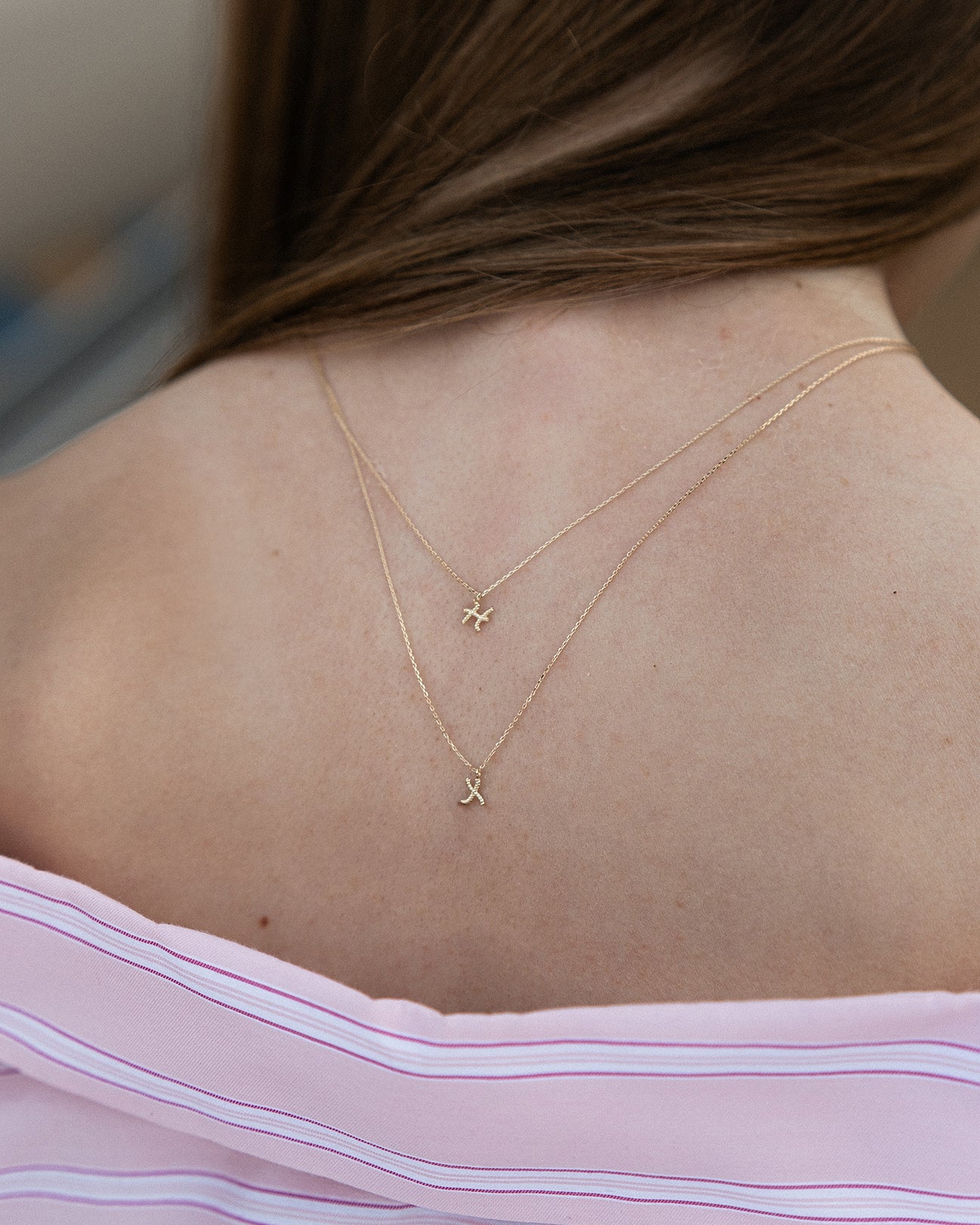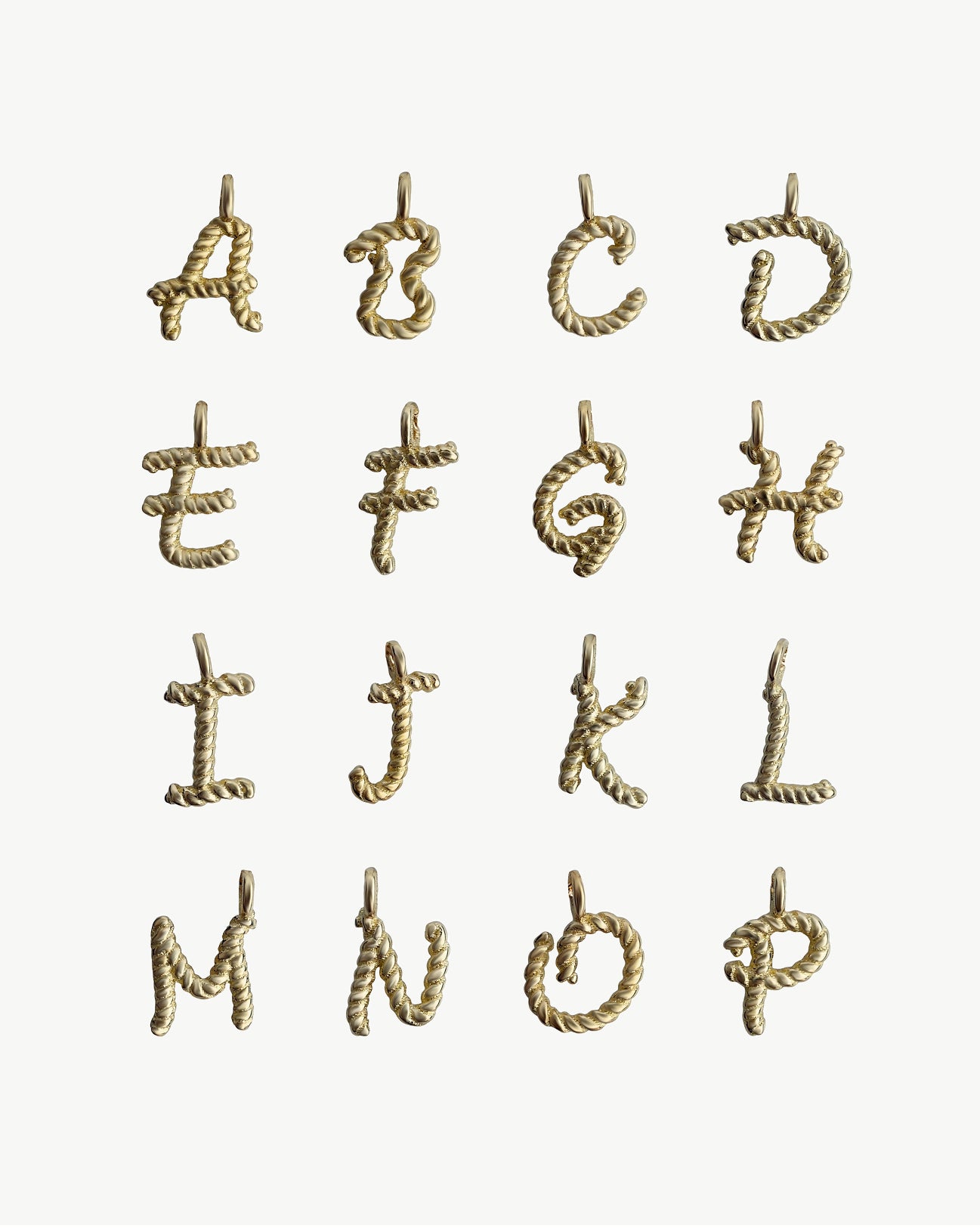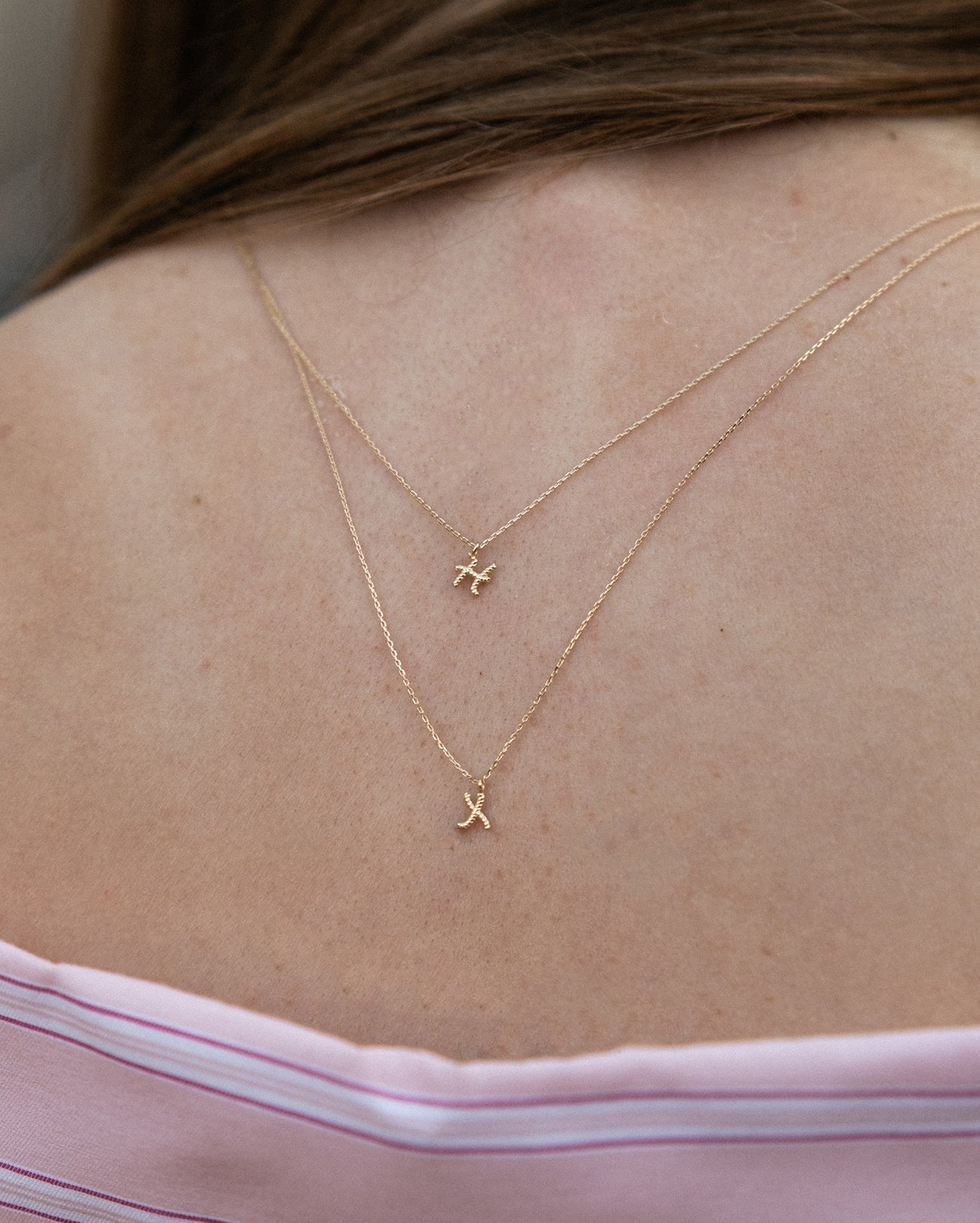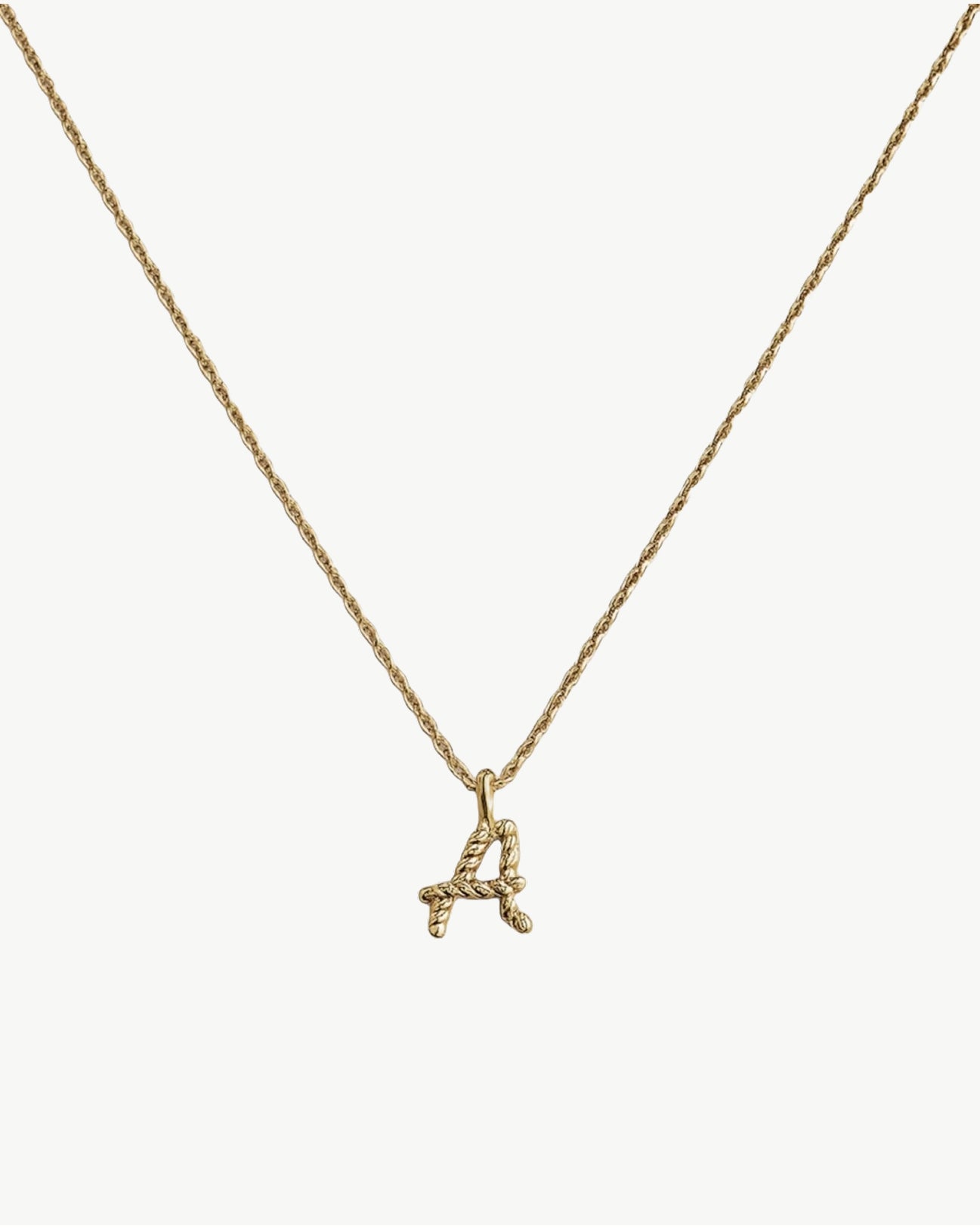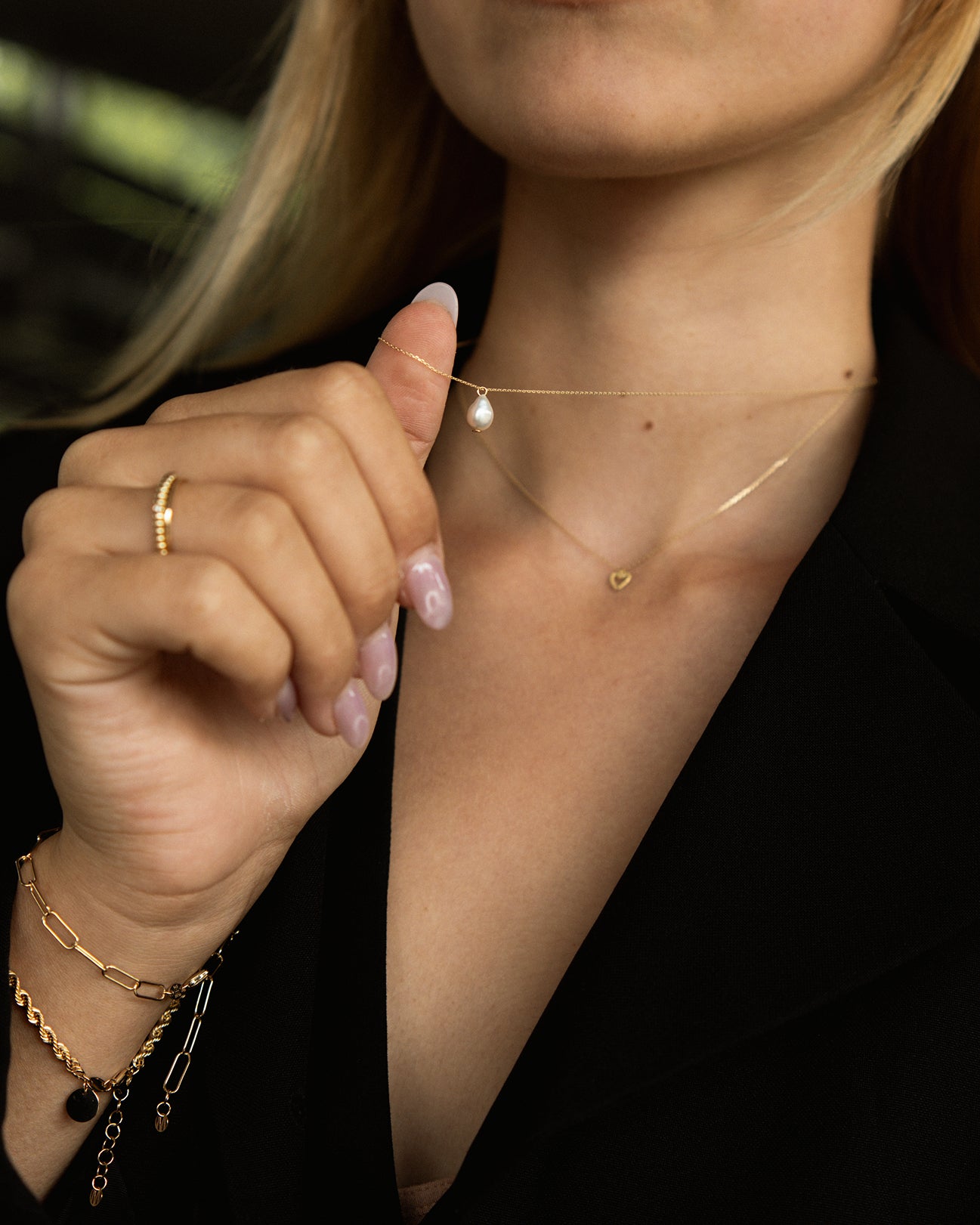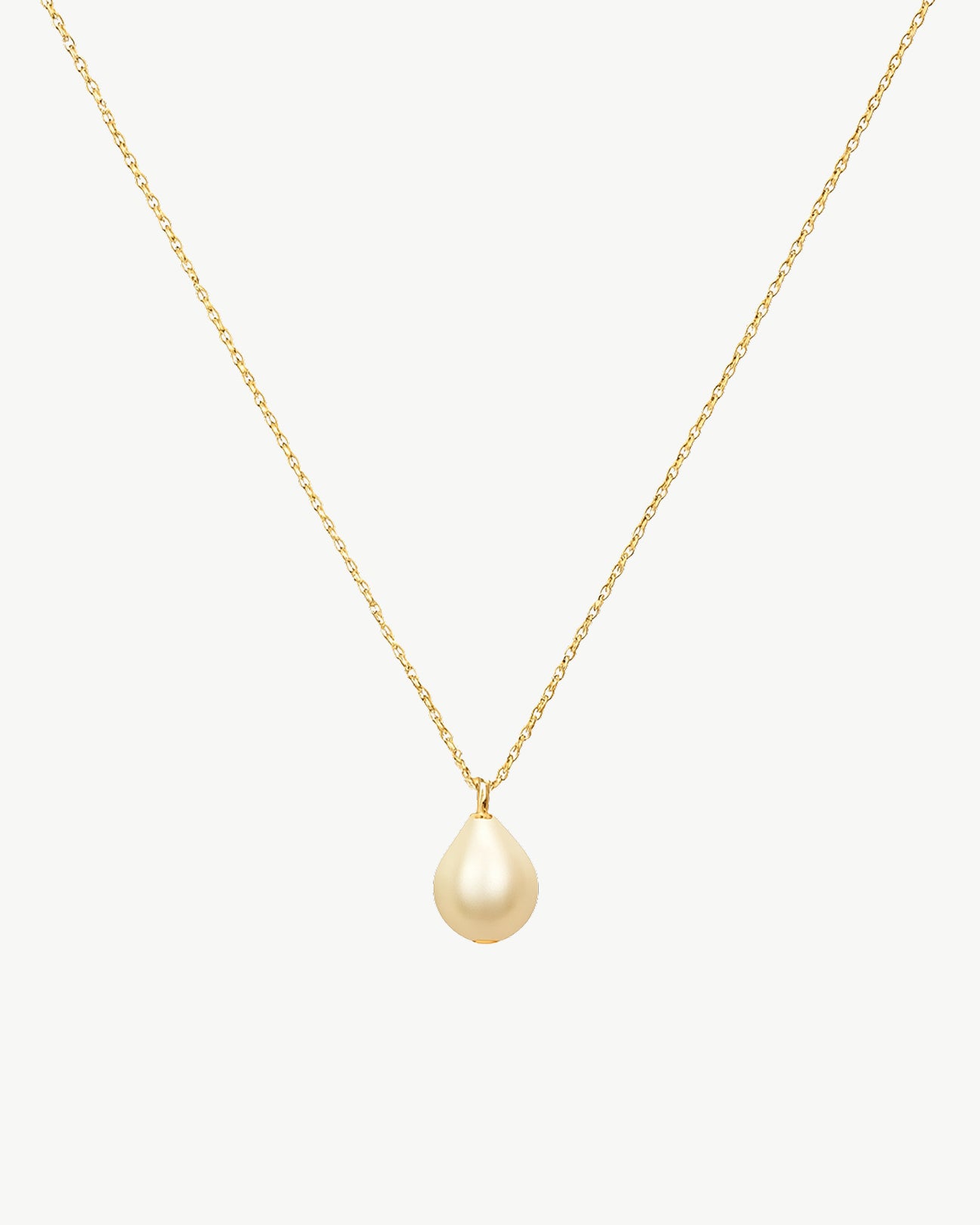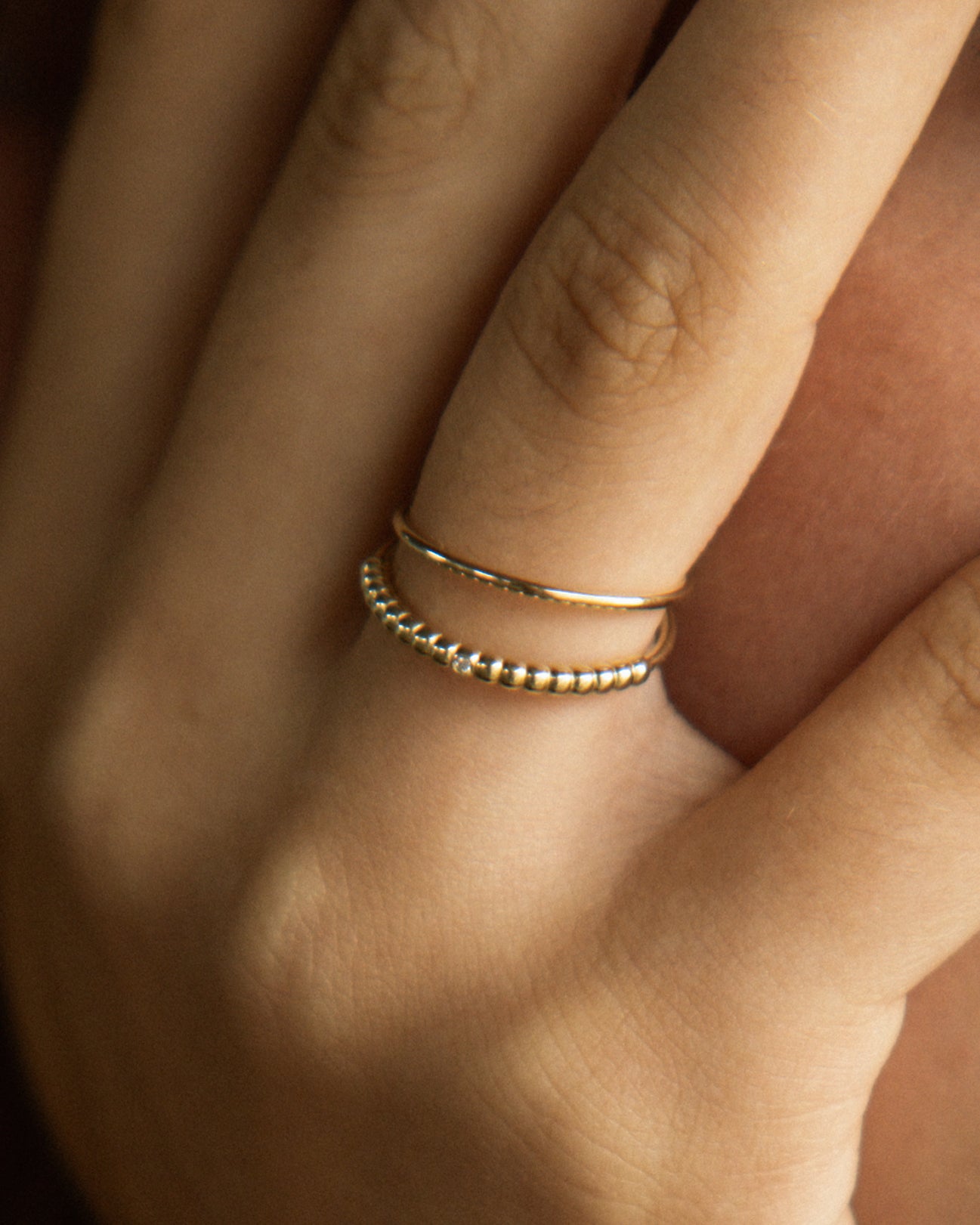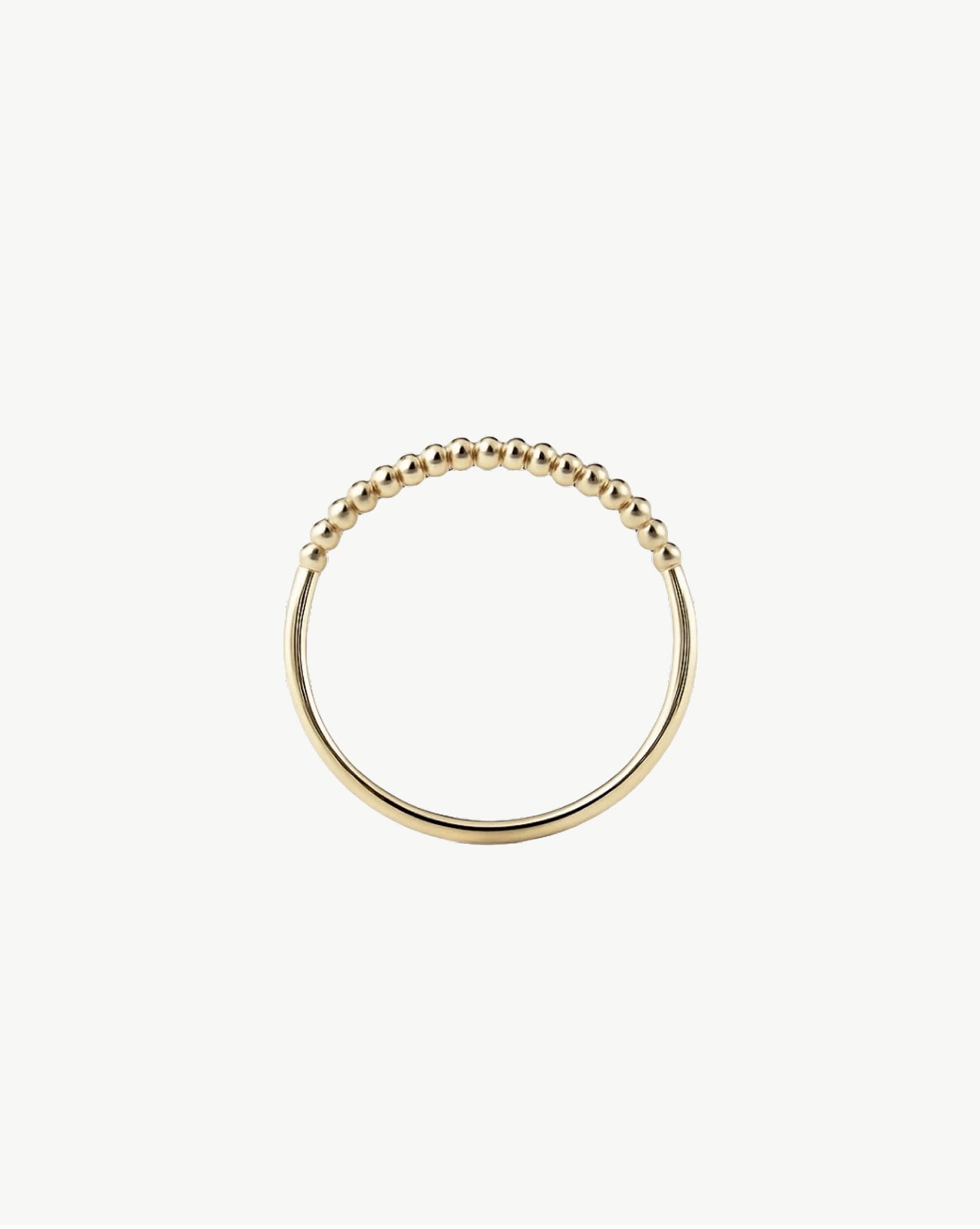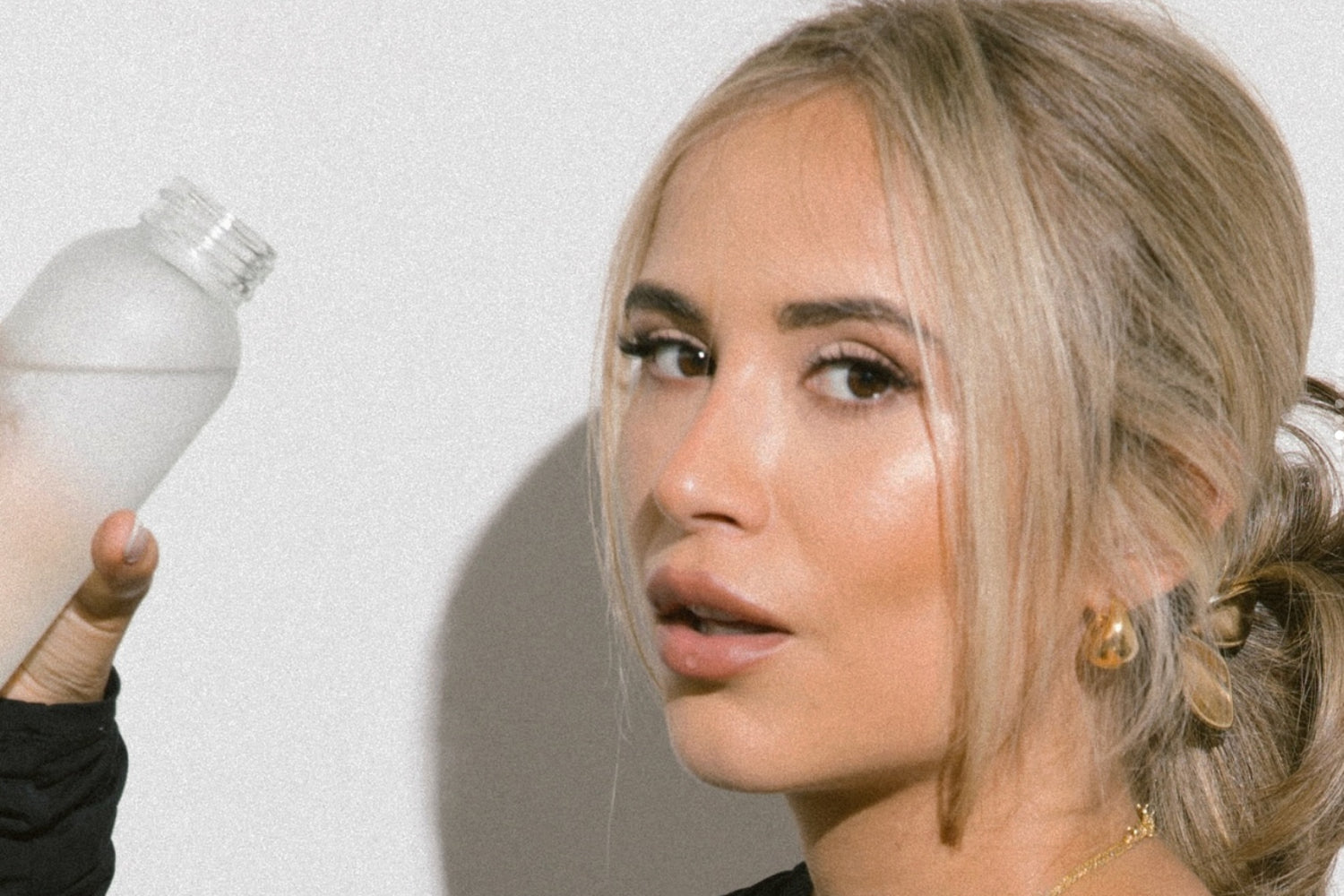There are moments in life when the path we’ve been walking no longer feels like our own. When the safe choice starts to feel heavy, and the unknown begins to whisper louder. For Izzy Utterson, that moment came when she chose to walk away from a secure 9–5 job without a backup plan - just a quiet but powerful knowing that life had more to offer.
Since then, Izzy has built a voice that resonates with thousands of women: one rooted in slowing down, honoring our rhythms, and choosing intention over autopilot. In this conversation, she opens up about the fears and freedom of leaving stability behind, the grounding rituals that carry her through anxiety, and what it really means to become your own muse.
The Breaking Point – Choosing Calm Over Chaos
You left a stable job in social media, not with a clear plan, but with a deep sense that you couldn’t stay where you were. So many people are stuck in that exact tension, afraid to make the wrong move. What did that decision feel like?
I was terrified at first. After spending years in the security of a traditional 9–5, you’re almost conditioned to believe that anything outside of that structure is risky and overwhelming. On top of that, self-employment is often painted as this intimidating world where taxes are impossibly complicated. But honestly, everything I’ve learned about money and managing the business side of things has come from the incredible women in this industry. Once you take the time to understand it, it’s far less daunting than it seems.
If that’s what’s holding you back, I’d encourage you to invest in a few lessons, ask every “silly” question, and find professionals who will explain things in a way that truly clicks for you, I literally asked my accountant to explain things as if I were a child, and it made all the difference. Deep down, I knew I had to leave my job because the environment had become so toxic. Walking away was terrifying, but it turned out to be the best decision I’ve ever made.
You’ve said before that life is too short to live on autopilot, but making a change can be overwhelming, especially with no clear backup plan. What helped you get through that in-between space where nothing was certain, but everything was shifting?
I gave myself a three-month window. At the time, my only real financial commitment was rent, so I saved up three months’ worth as a safety net. My mindset was simple: if working for myself didn’t pan out, I was more than qualified to find another role or even take on temporary work if necessary. Of course, it’s important to ensure you can support yourself for a period of time, but in hindsight, I think it was actually a bit of naïveté that carried me through, and I’m grateful for it.

Anxiety, Overwhelm & Nervous System Peace
You’ve built a voice around slowing down in a world that pushes us to speed up. Let’s talk about what that looks like, especially in the moments when anxiety or overwhelm take over.
When anxiety or overwhelm takes over, I come back to three simple practices that help me reset.
- First is reflection, pausing to notice what I’m feeling and naming it. Neuroscience shows that labeling emotions engages the prefrontal cortex, which helps regulate the amygdala and calms the body’s stress response.
- Second is box breathing: inhaling, holding, exhaling, and holding again for equal counts. This technique stimulates the parasympathetic nervous system, lowering heart rate and signaling safety to the brain.
- Finally, I use affirmations, grounding phrases that remind me I’m capable and supported. Repeating affirmations strengthens positive neural pathways and helps shift the brain’s focus away from fear-based thinking. Together, these practices create space between stimulus and reaction, allowing me to slow down and respond with clarity rather than panic.
Many young people today are living in a constant low-level state of anxiety, trying to succeed, balance relationships, manage health, and still feel okay. What are your signs that something’s off in your body or mind?
For me, the signs usually show up in my body before my mind catches on, I’ll notice my jaw tightening, my breath becoming shallow, or this jittery restlessness that makes it impossible to focus. Mentally, it feels like a loop of racing thoughts where everything suddenly seems urgent.
What’s the very first thing you do when you feel yourself starting to spiral?
The very first thing I do when I feel that spiral starting is pause and focus on my breath. Even just a few slow, steady inhales and exhales can calm the nervous system and give me enough space to step out of that fight-or-flight mode. From there, I can reflect on what’s really triggering the anxiety and remind myself that not everything needs my energy at once. It’s a small shift, but it makes all the difference in regaining clarity.
You share a lot about grounding habits—rituals that help you reset. Could you walk us through one of your go-to routines or practices that help when you feel overwhelmed, especially emotionally or mentally?
One of my go-to grounding practices is what I call a “reset ritual,” and I keep it really simple so I can turn to it anytime I’m overwhelmed.
- First, I step away from whatever I’m doing and put my phone out of reach, just that physical boundary helps create mental space.
- Then I take a few minutes for box breathing, inhaling for four counts, holding for four, exhaling for four, and holding again. This steadies my nervous system and shifts me out of fight-or-flight.
- After that, I journal for five minutes, not to solve anything but just to reflect and get the swirl of thoughts out of my head and onto paper.
- Finally, I close with a short affirmation…something like “I am safe, I can handle this”—to anchor myself in calm. Together, these steps move me from reactive to grounded, so I can return to my day with a clearer mind.
You were diagnosed with an autoimmune disease, and you’ve also shared that your mum was diagnosed with Alzheimer’s a few years ago—two things that can completely reshape how you think about health, energy, and time. How have those experiences changed the way you approach stress, self-care, or even the urgency to live meaningfully now?
Both of those experiences completely shifted how I think about health and time. Being diagnosed with an autoimmune disease forced me to confront the reality that stress isn’t just mental, it lives in the body and, if ignored, can take a real toll.
With my mum’s Alzheimer’s diagnosis, I was reminded in such a profound way that time and energy are finite, and that how we spend them really matters. Together, those lessons made me approach self-care less as a luxury and more as a necessity. I’ve learned to slow down, to protect my boundaries, and to prioritize things that truly nourish me, whether that’s rest, connection, or creative work that feels meaningful.
And there’s also a sense of urgency now, but not in the rushed, anxious way I used to feel. It’s more of a gentle urgency to live with intention, to make space for what matters, and to let go of the noise that doesn’t.

Trust, Identity & Becoming Your Own Muse
You’ve quietly built something powerful—your own brand, your own rhythm, your own way of working. Do you see yourself as an entrepreneur?
I never set out thinking, I want to be an entrepreneur, I just knew I wanted to create something on my own terms. Over time, though, I’ve realised that entrepreneurship is exactly what this is: building not only a business but also a rhythm and way of working that truly reflects who I am.
What has building a business taught you about self-worth, discipline, or even rest?
The biggest lesson it’s taught me is around self-worth, that the value of my work doesn’t come from how busy I am, but from the impact and alignment it brings. It’s also taught me a lot about discipline, because consistency matters so much more than bursts of inspiration.
And maybe most unexpectedly, it’s taught me about rest, that stepping back, slowing down, and protecting my energy isn’t indulgent, it’s essential to sustaining the bigger vision. In many ways, building this business has been as much about personal growth as it has been about professional success…rest is one im still working on haha.
In a world that constantly tells women to do more, be more, prove more, you often talk about being enough right now.
For a long time, I tied my worth to how much I achieved or how others perceived me. I thought if I just worked harder, ticked more boxes, or impressed the right people, then I’d finally feel “enough.” The shift came when I hit a point of burnout and realized that external validation is a moving target, you never quite catch it.
Was there a moment when you stopped chasing external validation and started building trust with yourself?
What changed everything was starting to build self-trust in small, consistent ways: keeping promises to myself, honoring my boundaries, and listening to my own intuition instead of always seeking approval. Over time, that practice created a quieter, steadier kind of confidence. It allowed me to show up with more authenticity and less performance, knowing that I don’t have to prove my worth, it’s already there.
Our brand, MUSE of my own, is built around the idea that we don’t have to wait to be chosen—we can be our own muse right now. Do you feel like that’s true for you? Or are you still becoming her, one decision at a time?
I don’t wait to be chosen anymore. There was a turning point when I started making choices from a place of alignment rather than approval: saying no to projects that dulled me, protecting my time, and intentionally creating work that felt like expression. Those decisions felt small in the moment, but they added up fast, and that’s what it means to be your own muse now.
At the same time, I’m still becoming her. Being your own muse isn’t a destination but a practice: a series of decisions that refine who you are and how you move through the world. Some days I feel fully embodied in that role; other days I’m learning the next act. Both are true, and both are amazing.
Jewelry, Memory & Energy Anchors
Do you have a piece of jewelry that carries meaning for you?
I think I have to say my engagement ring haha, its SO me and she’s the most perfect thing I’ve ever worn and just reminds me of the love and support I have not just from my fiancé but every person who I’ve met on my journey.

Gentle, Seasonal Self-Care
For any woman who feels burnt out, stuck in indecision, or just… tired—what would you tell her about slowing down, listening in, and finding peace even when nothing looks “figured out” yet?
Thank you for such a beautiful question. I would tell her this: you don’t need to have everything figured out in order to deserve rest, peace, or even joy right now. Burnout and indecision often come from pushing ourselves to move faster than our own rhythm, constantly trying to “catch up.” Slowing down isn’t falling behind, it’s what allows you to actually hear yourself again. When you pause, even briefly, you create the space for clarity to rise without force. Simple practices, like a deep breath, a few honest words on paper, or choosing rest without guilt, send powerful signals to your body that you are safe. And from that place, energy and direction begin to return naturally. Peace doesn’t come from everything being solved; it comes from allowing yourself to be present, even in the uncertainty.
If I could leave her with one mantra, it would be: you are allowed to rest, you are allowed to listen, and you are already enough…right here, right now.
With winter coming up—a season that often pulls us in a million directions—what are some small, realistic self-care practices you’d recommend for someone looking to reconnect with themselves?
Winter can so easily become a season of overcommitment, so I try to approach it with softness and simplicity. One practice I love is creating a short evening ritual, something as small as making a cup of tea, lighting a candle, and journaling for five minutes. It signals to my body that the day is done and gives me space to process before bed.
I’m also more mindful about boundaries with my calendar, saying no to things that feel draining, so I can say yes to what feels nourishing, whether that’s time with loved ones or quiet evenings at home.
And finally, I carve out moments of stillness outdoors, even a short walk in the cold air helps me reset and remember that slowing down is natural this time of year. For me, intention in winter isn’t about doing more; it’s about finding small, consistent ways to come back to myself.
---
Izzy’s story is a reminder that sometimes the bravest thing we can do is slow down—choosing alignment over approval, rest over rush, and self-trust over the need to please. Her journey shows us that becoming your own muse isn’t a single leap, but a series of gentle, intentional decisions that bring you closer to the life you truly want.
If you’d like to follow more of Izzy’s wisdom, grounding rituals, and everyday inspiration, you can connect with her on Instagram and join the thousands of women who resonate with her message. Because as Izzy reminds us, we don’t need to wait to be chosen—we can start living as our own muse right now.
*All images courtesy of Izzy Utterson.
